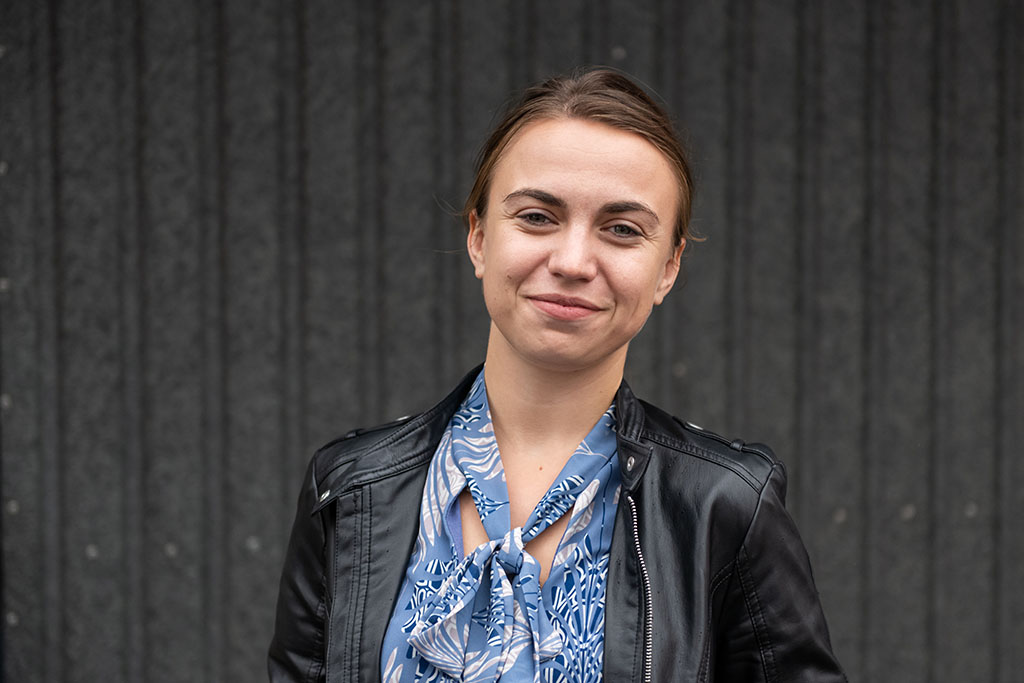Providing psychological support to survivors of gender-based violence
For many victims and survivors of gender-based violence, having access to a safe space and receiving psychological support is vital to help them move forward. In Grozdana Panić’s experience as a psychologist, the work to assist survivors throughout their process can be both challenging and fulfilling.

Grozdana Panić had always known she wanted her work to be meaningful and allow her to provide support to others. So, she chose the path of becoming a psychologist—and three years ago, she joined the Lara Foundation, a women’s rights organisation that provides support to victims and survivors of gender-based violence. Located in Bijeljina, Lara Foundation is one of The Kvinna till Kvinna Foundation’s long-term partners in Bosnia and Herzegovina. Founded after the war, the organisation has been supporting women’s rights since 1998.
“What I always wanted to do, is provide meaningful assistance to people who need it, especially women,” says Grozdana.
As of 2012, Lara Foundation also runs a safe house for survivors of domestic abuse. Here, affected women and their children can seek shelter and protection from perpetrators. This is particularly vital for women who are economically dependent on their abusers and who do not have the financial means to get out of their current living situation.
Counselling for survivors of violence
A significant aspect of Grozdana’s work involves offering psychological counselling to women residing in the safe house, both in individual and group therapy sessions. Additionally, she provides counselling to women living at home, who visit the office seeking assistance and advice. This approach ensures that women affected by domestic violence receive the necessary psychological support, regardless of their living situation.
In addition to professional counselling, Lara Foundation also runs a self-help group with support from psychologists such as Grozdana.
“[The group] now has around ten women in it, and these are women who are at different stages in the process of leaving the perpetrator of violence. So, some are still in the process, and some are now fully independent,” says Grozdana.
“It’s very important that we have this group of various women, from different backgrounds, because they support each other. Plus, with our guidance, they’re able to help each other in this group to overcome the obstacles that they face.”
Supporting women and children affected by violence
Ever since her studies in psychology, Grozdana had also wanted to work with children. As a psychologist for Lara Foundation, she gets to do just that:
“Very often women come to the safe house accompanied by their children,” says Grozadana. “We work both with their children and the women—but for children, we plan for special activities. Our first goal is to make a connection with them and to build trust. Establishing this connection with children who have experienced violence or are coming out of an abusive environment, is key to providing effective psychological support to them and their mothers,” says Grozdana
“[O]nce we do that, we can start working on the trauma and on overcoming all the consequences of the incidents that happened,” she adds.
For women who end up leaving the safe house, for example after finding their own accommodation, Lara Foundation continues to provide individual counselling and psychological support. Many of them stay in touch with the organisation and continue to visit the office for counselling sessions.
Breaking the cycle of control
Many of the women seeking support from Lara Foundation often carry deep feelings of guilt and insecurity—a result of their abuser’s blame and control. It is common that perpetrators of abuse isolate their victims from family and friends, leaving many survivors socially isolated and finding it difficult to interact with others.
“[I]t’s always this; the cycle of control; which in fact takes women away from everyone and everything,” says Grozdana.
For Grozdana and her colleagues, a key aspect of their work is to help survivors of violence rebuild their confidence.
“They’re quiet, they’re withdrawn because they’ve gone through a process in which the perpetrator basically put all the blame on them. So, there is this very distinct guilt that they feel. They first start analysing themselves, looking for faults, looking whether there’s something wrong with them” explains Grozdana.
In her experience, the process of helping survivors to regain their confidence and become more self-aware often takes a lot of time, patience, and encouragement. But over time, there is a visible change in their behaviour and how they carry themselves—for example with newfound confidence in the way they talk and even a smile.
“There is actual physical change that you can see in the process,” says Grozdana.
“It requires a lot of patience and low expectations”
For Grozdana, working with survivors of violence and supporting them throughout their individual process can be both fulfilling and challenging at times.
“I would lie if I were to say that all days are nice and beautiful doing this, because they’re not,” she says. ”This work requires a lot of empathy and raises a lot of emotions. So it is tough. But seeing the change, the progress, that’s something that’s really great.”
Working as a psychologist with women who have experienced abuse has also required Grozdana to sometimes lower her expectations of the outcome of her efforts. She has learned to accept and support survivors’ personal journeys and complex, multi-faceted decisions—even when they might include a woman going back to her abuser.
“[I]t’s something that we have to respect, because it is a difficult process and it’s part of ‘her’ process,” she says.
“[W]e simply have to give the women the necessary time and wait for when they are ready to say, ‘I’m leaving forever’. We also need to continue providing support during that time. So, it requires a lot of patience and sometimes lowered expectations. Despite it all, I think that we are doing something right.”